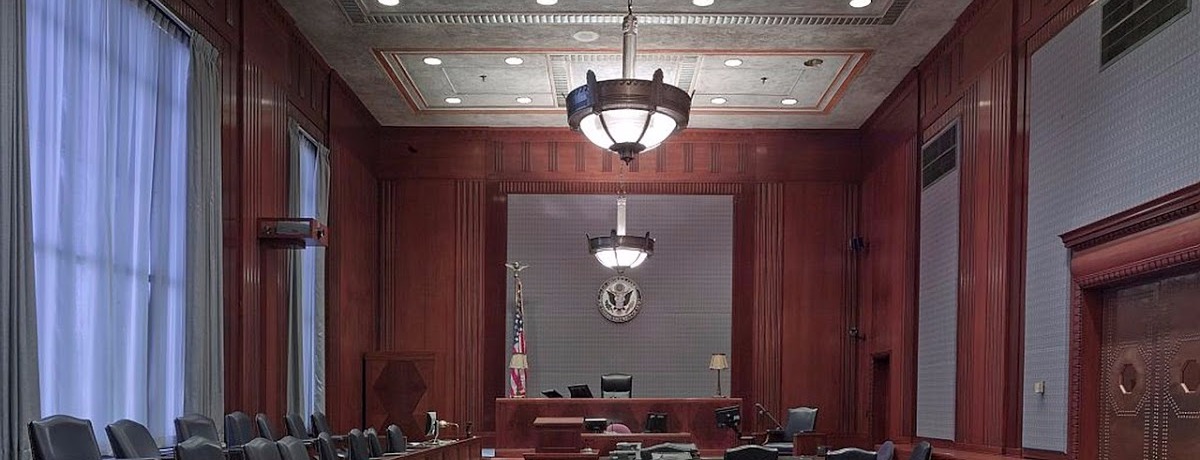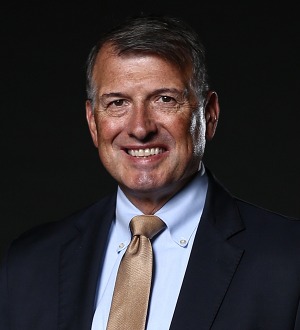“We may be trying to let a guilty man go free, I don’t know. Nobody really can. But we have a reasonable doubt, and that’s something that’s very valuable in our system. No jury can declare a man guilty unless it’s sure.”
–Twelve Angry Men, William Shakespeare
Jury service is one of the most important civic duties a citizen is called upon to perform. Juries help protect our rights and liberties in a fundamental way; through the jury system members of the public decide civil and criminal disputes.
I recently had the privilege of serving on a jury. OK, to be honest, when I received my third summons to jury duty (I was able to get out of serving twice before because of unavoidable conflicts), I didn’t really think of it as a privilege. I considered it an unavoidable annoyance that would take time and billable hours out of my schedule. I didn’t think I would ever actually get on a jury. In any event I had no choice, so I appeared on a Monday morning, as ordered, at the Ramsey County Courthouse.
Lo and behold, soon I was selected to be on a jury. Our case was a criminal prosecution for violation of a no-contact order. After voir dire, very short opening statements, testimony from four witnesses, closing arguments, and instructions from the judge, we deliberated for about two hours before reaching our verdict.
What follows are my random observations as someone who has tried and prepared many cases for trial, but who was not involved in any aspect of this case before trial. I was not involved in developing the strategy. There may be good reasons things happened as they did. I have not talked to either lawyer about their reasoning or strategy.
Jury Selection
The final jury of six, plus one alternate, had an interesting composition. It consisted of three men and four women; six caucasian and one Asian-American. (In our entire panel of 20, as I recall, there was only one African-American person for a case involving an African-American defendant and an African-American alleged victim.) The jury included one lawyer (me) and one former police officer.
I was disappointed by how the lawyers conducted voir dire. Both lawyers seemed to have prepackaged questions that they asked each of the 20 panel members to answer. They went in order through the panel, and asked few follow-up questions. I realized that I didn’t need to pay close attention until it was my turn, and other panel members clearly felt the same way. It seems to me that the better practice is to skip around the jury panel, vary your questions, and ask follow-up questions. This will keep your jury panel more thoroughly engaged and better connected to you as a lawyer.
Many would have expected the lawyer and the former police officer to have been struck by one side or the other, but we weren’t. We were joined by a college student, a youth center worker, a truck driver, a retiree and a credit analyst.
Opening Statements
The opening statements were short. The prosecutor’s statement lasted about 30 seconds, while the defense lawyer’s was less than five minutes. Neither lawyer’s opening statement gave us a roadmap or a theme about the case we were hearing. Perhaps neither lawyer knew what the witnesses would say, but some guidance would have helped.
Missing Evidence
The jurors were most interested in the parts of the story we were not told about. Apparently as a result of the court’s evidentiary rulings, we were given only limited information about why the no-contact order was entered in the first place. We were advised that this was because of a court decision, and not due to a decision by the prosecution or defense, and we accepted and understood that.
Missing forensic evidence, however, was a different story. And it was critical. The lesson, perhaps, is that in an era of “CSI Miami” and “Law & Order,” it is more difficult to establish facts based solely on witness testimony. My fellow jurors and I wanted to see hard evidence and didn’t understand why it wasn’t available.
In our case, the prosecutor contended that the defendant, who was subject to a no-contact order, had been at a gas station across the street from where the protected person lived, and that while she was filling her boyfriend’s car with gas the defendant approached and talked to her. In addition, the defendant then allegedly contacted the protected person by cellphone. Both of these actions would have been a violation of the no-contact order. The missing evidence was the video from the gas station and the cellphone records.
It is possible that, even if the prosecutor’s allegations were true, the evidence simply didn’t exist. Perhaps this gas station didn’t keep surveillance video to catch drive-offs (which we on the jury thought doubtful) or perhaps the police hadn’t obtained that video before it was destroyed. And it is possible that the defendant and the protected person both had pre-paid phones, and therefore there was no obtainable re- cord of the calls. From my perspective, the jury would have forgiven the lack of the missing evidence if it had been explained. But the prosecution didn’t explain why the evidence was missing, which immediately contributed to reasonable doubt. Interestingly, however, the defense didn’t make a big deal out of the missing evidence either.
Closing Arguments
Both lawyers gave closing arguments that were significantly longer than their opening statements, and seemed better designed to persuade us. But neither side dealt with the missing evidence.
Jury Deliberations
The former police officer served as foreperson but was very careful not to inordinately sway the rest of us. We deliberated carefully, went through all the evidence that was presented, and considered the credibility of the witnesses. The defendant had not testified, but we respected the judge’s instructions that this was not to be considered.
As noted, the jury’s primary focus turned out to be the missing evidence. There was also significant discussion of the credibility of certain prosecution and defense witnesses. But in the end we concluded that there was reasonable doubt as to the defendant’s guilt, and therefore found him not guilty. It was not as dramatic as “Twelve Angry Men,” but the principle was the same – the jury could not declare the defendant guilty unless it was sure.
Conclusion
Serving on jury duty was a surprisingly satisfying experience. More than the annoyance I expected, I was proud to have participated in the system, and to have reached what I thought was a just verdict. And it was educational. Like many things, what we learn about juries in law school, or as practicing trial lawyers, is not the same as experiencing it firsthand in the jury room. As a final take-away, and this applies to both criminal and civil lawyers, if there is a soft spot in your case, or evidence that is missing, be sure to explain it to your jury – you can be sure that they will be thinking about it and perhaps not in the way you want them to.

















